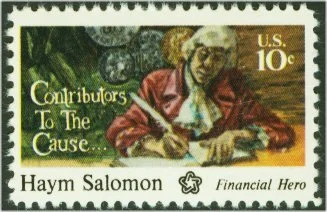She became, writes historian Henry Louis Gates, “the most famous African on the face of the earth, the Oprah Winfrey of her time.”
Read MoreHow Washington Won the War
A war-time incident involving a lost dog underscored the biggest reason Washington won the war.
Read MoreHow Did the Middle and Lower Classes Fare in the Roman Empire? →
Despite the general decline in morals and governance that characterized much of the imperial era, ordinary Romans fared better than you might surmise, at least until the decline overwhelmed them in the late fifth century. Photo: part of the Circus Maximus.
Read MoreMy Best Investment Ever
I took an evening course once that proved to be the best investment I ever made. Pictured here is the same model of typewriter that I used for that course. Thank you, Charles Latham Sholes!
Read MoreEisenhower and the Berlin Capture, 1945
In September 1944, General Eisenhower intended for Allied forces to eventually capture Berlin, the Nazi capital. By March 1945, he had changed his mind. Why? This is an essay I wrote 51 years ago as a senior at Grove City College.
Read MoreA Very Old Racket
Historians generally posit that the Roman welfare state appeared in the last century of the old Republic, beginning with grain subsidies in 123 B.C. But the racket is even older than that, by at least 300 years. Photo credit: Douglas Rissing via iStock.
Read MoreChina's Past Through a Lens of Liberty →
A new, free eBook from FEE. On Chinese history from a liberty perspective by Lawrence W. Reed and Katrina Gulliver.
Read MoreWhen America Bought Land From Denmark
The U.S. never threatened or bullied Denmark before it peacefully purchased the Danish West Indies more than a century ago.
Read MoreHe Gave It All for America
Arrested and incarcerated twice by the British for espionage, this Polish immigrant gave all he had to the American cause.
Read MoreThomas Paine and the American Spirit
On the 250th anniversary of the appearance of Common Sense, I decided to give it a long overdue re-examination. I wanted to see if it would “electrify” me as it did so many people so long ago. It did.
Read MoreHappy 90th Birthday to the Man from Perth →
January 8 is a very important day in the illustrious life of Australia’s preeminent champion of freedom and free markets.
Read MoreHe Could Have Been President
He was a man of integrity whose political and economic positions often flowed naturally from that very fact.
Read MoreThe Caracas Conundrum
What happens now runs a huge risk of turning a great moment for freedom into an indefensible quagmire.
Read MoreThe Most Idiotic Things Ever Uttered by Socialists About the Collectivism They Impose
Zohran Mamdani’s “warmth of collectivism” remark may prove to be the most idiotic of the year, but socialists say dumb stuff like that all the time.
Read MoreHonest When No One is Looking
Does this story tug at your heartstrings? If it does, then you appreciate something the world desperately needs, something that is crucial to a free and moral society—honesty for the sake of it. Photo: Dr. Haing S. Ngor.
Read MoreForeword to "Chasing Value" by Simon Studer
From income inequality to jobs to politics to personal independence, Simon Studer shows how value—subjective, personal value, the only kind there is—makes the world go round. Most readers of this book will never see the world the same way again. And that, you will learn, is a very good thing. A wonderful contribution in the Austrian School tradition.
Read MoreBooks for Winter Evenings
Thomas Jefferson once said, “I cannot live without books.” Indeed, he owned about 6,000 of them, which he sold to Congress in 1815.
Read MoreA Montana Moment to Remember →
A testament to a friendship that hopefully will endure forever.
Read MoreThe Good Counsel of Mrs. Marx
The pigeons in the picture got it right. Marx was a detestable fraud and he should have listened to his mother.
Read MoreAmericans Who Separated Church and State
Matters of belief and conscience should belong exclusively to the individual and his Maker, not legislators and potentates.
Read More



















